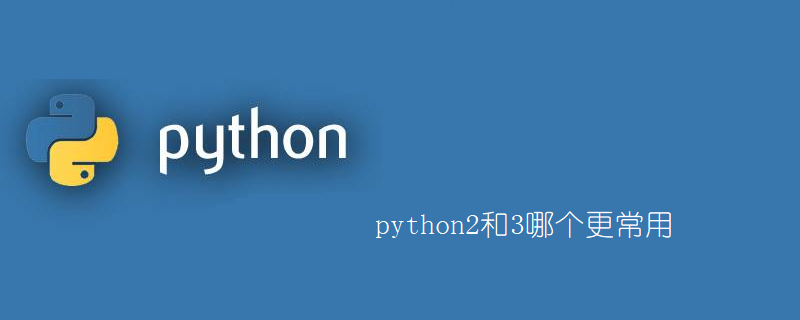Home >Backend Development >Python Tutorial >Which one is more commonly used, python2 or 3?
Which one is more commonly used, python2 or 3?
- anonymityOriginal
- 2019-06-12 09:48:222827browse
The Python language was born in the 1990s. It is already a 25-year-old uncle-level language by now (there is also a famous java in the same era, which was released in 1995 and became popular. Decades). However, Python's real fame came many years later than Java. In fact, it was mainly due to the changes in the application field.

Python2 is a very important version of Python. The earliest version started in 2001, especially the release of py2.5 starting in 2006. python The functions gradually became more powerful and stabilized, and a version was added every 1-2 years. It gradually became popular around 2008.
Python3 was first released in 2008, but the version of py3.0 is very unstable, so the community updates it very quickly, every few months. So not many people used it at the beginning. It was only when python3.4 was delivered in the spring of 2014 that it began to slowly stabilize.
Let’s look at some data. This is a survey conducted by the Python Community Alliance and some websites in 2014. Regarding Python2/3, some of the results are as follows:
1 ).97.51% of users are still writing Python2 code
2).60% of users are writing Python3 code
3).78.09% of users are writing more Python2 code
4).77.09% of users recognize Python3
Currently, some operating systems in Linux have used Python3 by default:
1).Arch Linux (Light A large-scale Linux operating system)
2).Ubuntu 16.04 (a desktop application-based Linux operating system)
3).Fedora (the continuation of the Redhat desktop version)
The above is the detailed content of Which one is more commonly used, python2 or 3?. For more information, please follow other related articles on the PHP Chinese website!

